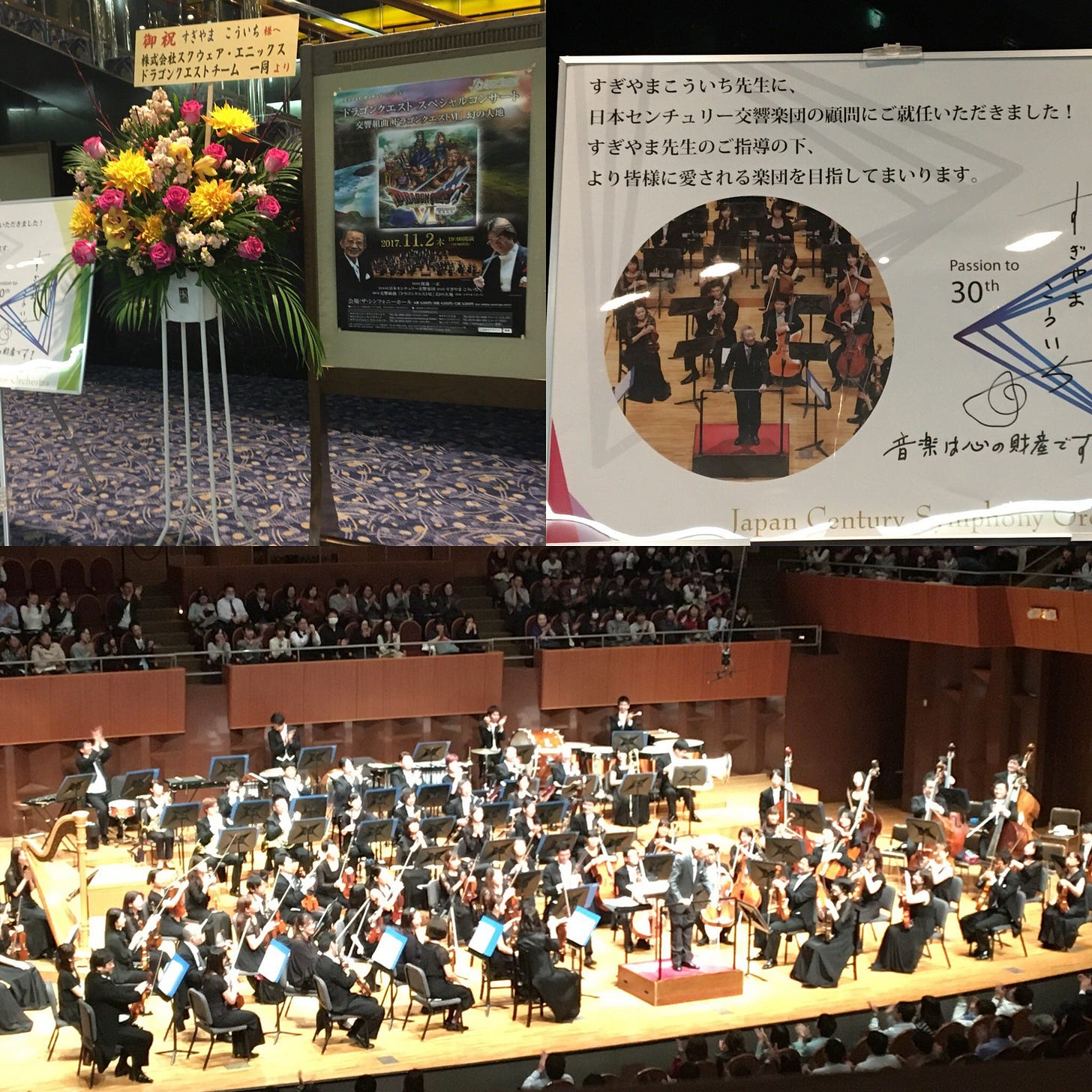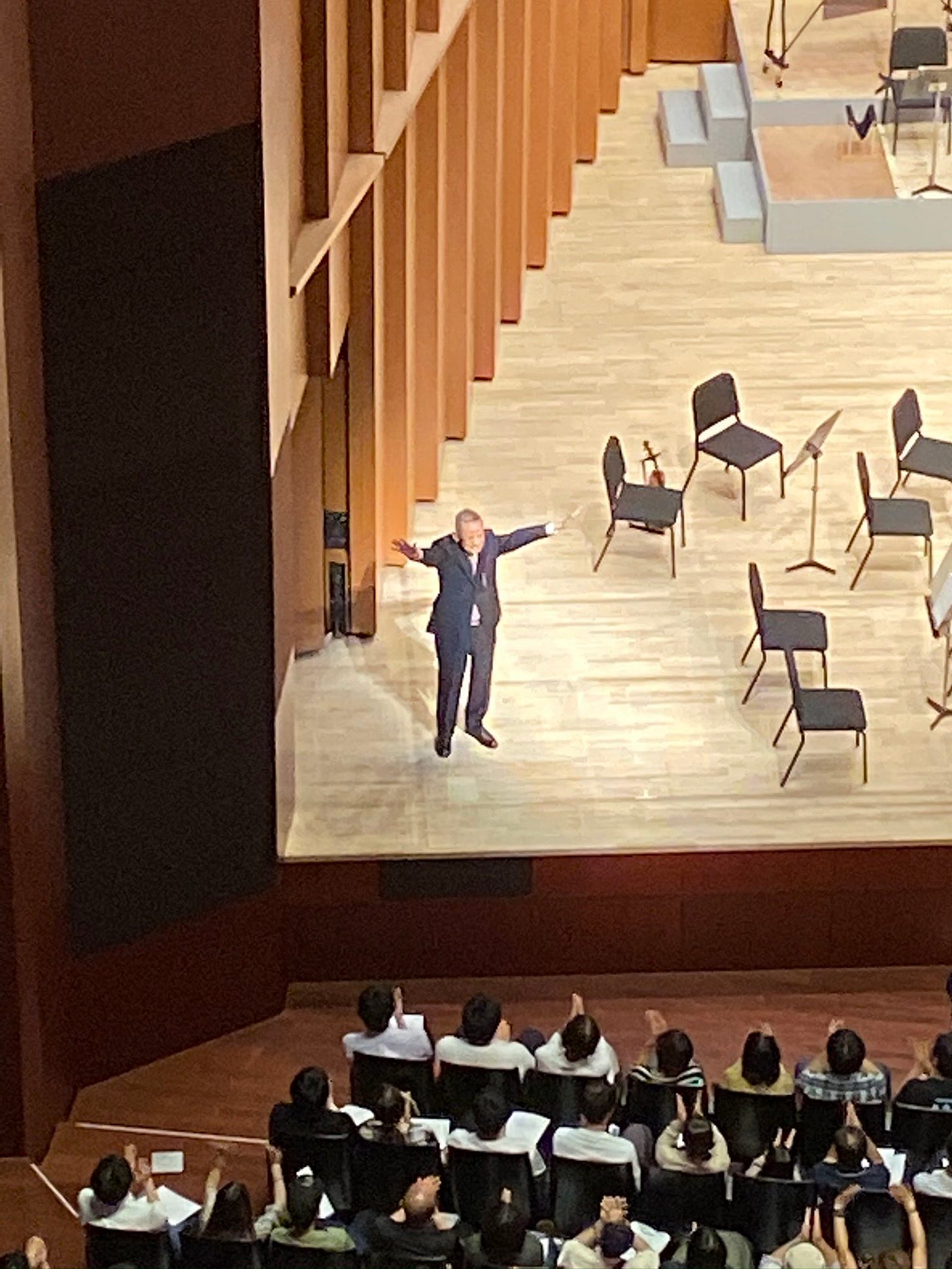Bonus Perspectives: Japanese PM Kishida Out, Tim Walz's Military Record, John Woo, and the Controversial Music of Dragon Quest
The future of Japanese politics, the unexpected role of military service in the 2024 U.S. presidential elections, and my weekly media recommendations.
Bonus Perspectives is a weekly column series containing my thoughts on the latest Western news and Japanese news, as well as film, television, music, book, and video game recommendations. It’s free for all subscribers to this Substack, but if you enjoy my writing, consider opting for a paid subscription. Doing so will give you access to exclusive in-depth pieces and my entire backlog of work. Your support is greatly appreciated!
Before we get into this week’s edition of Bonus Perspectives, I’d like to begin with a bit of important housekeeping. Until now, I’ve divided this column into six sections: two for covering news and four for covering media recommendations. I initially intended for these articles to be on the shorter side so I could provide a steady stream of written content while working on my longer pieces. However, I’ve come to realize that each entry of Bonus Perspectives is getting longer than expected, which entirely defeats the purpose of quick, digestible pieces for my readers.
It’s also becoming increasingly difficult to read a different book or play a unique video game every week, so instead of trying to create content just for the sake of it, I’ve made the editorial decision to reduce the six sections of Bonus Perspectives down to four. I will continue to comment on one piece of notable Western news and one piece of notable Japanese news, while my media recommendations will be in two sections.
I regularly consume a lot of eclectic media, but what gets featured will depend entirely on my schedule. Some weeks I will recommend films and music, other weeks I will recommend films and books, etc. Since I’m a full-time PhD student and recently started a separate part-time job to earn more regular income, what I watch, listen to, read, or play is down to what I can fit in with my other commitments. 24 hours in a day is never enough.
This condensed format will allow for two things: 1). I’ll be able to stick to my goal of each new article going up around Monday mornings Eastern Standard Time with fewer delays and 2). I won’t have to rush finishing media for this column. The latter also means that some films, music, books, and video games will get their own dedicated articles. For example, video games like Spec Ops: The Line which I initially intended on covering briefly on Bonus Perspectives are more deserving of deeper analysis. I also still intend on continuing my other column series A Bit of Film and War, which has been left neglected for too long. I’ll aim to have at least one new entry of that series published a month.
I apologize if some readers are disappointed with this change, but rest assured Foreign Perspectives is not losing content. Bonus Perspectives will always be available for free subscribers, while the more in-depth pieces such as this recent analysis I did of The Wolverine are for my paid subscribers. I encourage you to upgrade your subscription if you haven’t already because I have plenty of exclusive pieces in store, and it also allows for this Substack to remain a viable enterprise.
Thank you again for all the support you’ve given me so far. I’m currently at over 700 subscribers and I’m hoping to hit 1000 by the end of the year. With that out of the way, let’s move on to this week’s edition of Bonus Perspectives.
Tim Walz’s shaky military record and why it’s unlikely to matter

One of the more unexpected developments in the 2024 U.S. presidential elections is the role military service is playing. Minnesota Governor Tim Walz is Vice President Kamala Harris’ running mate and both are now officially confirmed as the Democratic Party’s nominees. Like many Americans, I had never heard of Walz before this announcement and it’s only recently that the public is learning more about who he is.
Walz strikes me as a standard Democrat who isn’t particularly radical, but in many ways is the perfect partner for Harris given his similar history of changing positions. His views on guns and spending have shifted more leftward throughout his political career, leading people on both sides of the aisle to decry Walz as an opportunist. Others have called him a pragmatist or someone who changes his views after absorbing new information, but I’m not a Minnesota resident, so I’ll leave those discussions to people who are actually affected by his policies. What does fascinate me is the discourse around Walz’s military service.
First, a history lesson. The Minnesota governor signed up for the Nebraska National Guard when he turned 17 in 1981 at the encouragement of his Korean War father, who passed away three years later. Walz initially served in the military for 20 years, which would have qualified him for retirement, but reenlisted after the 9/11 attacks. This is where things get complicated. Despite constantly referring to his military record and claiming in 2018 to have carried weapons “in war,” the only deployment Walz had post-9/11 was to Italy in 2003.
This was for the purposes of supporting troops already in Afghanistan, but Walz himself never stepped foot in a Middle Eastern battlefield. He later claimed he “misspoke” with these remarks, but the damage was already done with Donald Trump’s running mate JD Vance accusing Walz of “stolen valor” and also slamming the governor for allegedly letting his unit go to Iraq without him.
This Politico article gives a good rundown of the controversy, but to make a long story short, Walz filed paperwork in February 2005 for what later became a run for Congress, while the National Guard stated in March that his battalion could be deployed to Iraq. Walz initially said he would honor this deployment, only to announce his retirement from the military two months later. His unit received its official mobilization orders in June 2005 and went to Iraq in March 2006. During this time, Walz fully devoted himself to politics and won the Congressional election.
The biggest mysteries are what date Walz requested to officially end his service and if he knew that his unit would be going to Iraq. The latter at least seems highly plausible. While one should keep in mind that the man was in his 40s and had already served for over 20 years, publicly stating that you will go with your men into battle only to pull out is not a positive note to end on. There is also controversy over Walz’s final rank. He previously said he was a retired command sergeant major, but in actuality he finished his service at this rank and in retirement is now a master sergeant, which is not the same. The official Harris-Walz campaign website even had to be edited to reflect this.

JD Vance’s criticism of Walz created its own controversy, with Democrats pointing out that Trump’s running mate did not see actual combat either. Still, it should be noted that Vance enlisted in the Marine Crops after he graduated high school, was in Iraq for six months from August 2005 as a correspondent, and did accompany combat soldiers into dangerous situations. In his memoir Hillbilly Elegy, he wrote that he was “lucky to escape any real fighting” and did not embellish what his role was. While I have plenty of disagreements with Vance, it would be inaccurate to dismiss him as not having risked his life to cover the Iraq War.
The elephant in the room, however, is Donald Trump himself. The former U.S. president is infamous for draft dodging the Vietnam War by faking an injury, something that on its own would admittedly not be morally egregious given the unpopularity of that conflict among the American public at the time. Yet Trump went on to make atrocious remarks about the late Senator John McCain, who lived through five-and-a-half years of brutal torture at the hands of the North Vietnamese communists. It is disputed if the former president’s other allegedly disparaging comments about other veterans actually occurred, but JD Vance’s criticism of Walz given his running mate’s overall tone toward people who actually did serve rings slightly hollow.

Still, it makes sense why a veteran like Vance who actually was in Iraq would take issue with a veteran like Walz who did not go to the Middle East and has used imprecise language to describe his service. But both men did serve honorably with the military and have years of service to show it. This is the first U.S. presidential election in decades which has veterans running on both sides, which is historical significance that should not be discounted.
At the end of the day, I don’t think debates around military service are going to matter in 2024. Hardly anyone is voting for Trump or Harris because of their running mates. Those who support and hate the former president have already made up their minds, including if his crass comments are beyond the pale. Tim Walz fudging his military rank is unlikely to change the hearts of committed Democrats either because they’re voting for President Harris above any concerns around Vice President Walz.
I decided to weigh in on this topic purely out of historical fascination. We’re at a point where it’s now essentially impossible for a Vietnam War veteran to ever become president because that generation is too old. Senator and presidential candidate Bob Dole was the last surviving World War II veteran to be an American politician, and to my knowledge former Representative Charles Rangel is the last living Korean War veteran of U.S. politics at age 94. Any future presidents with military service will have served in the Middle East and given the increasingly polarized nature of each election cycle, candidates attacking each other’s service record will likely become more commonplace.
Japanese Prime Minister Fumio Kishida is out, what next?

The reign of Fumio Kishida will come to an end in September after the Japanese prime minister announced last week that he would not be seeking re-election as the leader of the ruling Liberal Democratic Party. The LDP will decide on Kishida’s replacement next month, which in turn will determine Japan’s next prime minister.
Kishida leaves office amid low approval ratings and overall dissatisfaction among the Japanese public with the current administration’s seeming inability to deal with ongoing economic issues and party scandals. To be fair to the prime minister, Japan long suffered from inflation before him and the current depreciation of the yen is not something he can really change, but it makes sense why confidence is lacking. This is the second-longest administration since Junichiro Koizumi, while Shinzo Abe’s near eight-year tenure was a tough act to follow.
As I mentioned in my last column, I’m not someone who can really provide an informed debriefing on Kishida’s economic policies or party finance scandals, so I once again recommend you look elsewhere for those takes. But as an international relations scholar, I can weigh in on Kishida’s foreign policy. While his domestic policy was a very mixed bag, Kishida deserves top marks for increasing Japan’s defense spending to 2% of the GDP and boosting the country’s military alliance with the United States.

Japan is neighbored by China, North Korea, and Russia — countries which pose significant security threats to the region. Shinzo Abe’s lifelong goal was to push for constitutional reform that would revise Article 9 and allow Japan to use offensive military force. While Japan has long been described as a pacifist nation in the decades following World War II, modern geopolitical realities have made eternal peace an unrealistic prospect. Abe was ultimately unsuccessful in revising Article 9, but Kishida continued his legacy of increasing Japan’s military capabilities within constitutional limits.
Understanding Japan’s need for strong alliances was also another big motivating factor in Tokyo repairing its strained relations with South Korea. For the time being, conservative ROK President Yoon Suk-yeol is the most pro-Japan leader the country has had in years. Kishida capitalized on this opportunity with a relatively easy winning strategy that emphasized closer ties, including unprecedented joint military drills between the Japanese and South Korean coast guards. This improved relationship is at risk of worsening if a progressive Korean president takes the Blue House in 2027 since left-wing parties are typically critical of Tokyo, but Kishida can at least legitimately claim to have accomplished some of the best years of Japan-ROK relations under his watch.

The Japan Kishida leaves behind now faces an uncertain future. There is no obvious front-runner who will replace him as the LDP’s leader. As my friend Gearoid Reidy pointed out in his recent column, names like former Foreign Minister Taro Kono, gaffe-prone Shinjiro Koizumi, and current Secretary-General Toshimitsu Motegi are all in the race, but they would bring forth very different policies. Foreigners often mistakenly believe that Japan is an undemocratic one-party state, but the ideological diversity of the LDP’s various factions practically guarantees that no two prime ministers it produces will be the same kind of leader.
There is also the American factor to consider. Kamala Harris winning the presidency in November most likely would continue the status quo, but her exact foreign policy is up in the air and an area the vice president is not well-versed in. Donald Trump winning is an even bigger wild card. His famous friendship with Shinzo Abe was likely a big reason for things not changing too drastically during his first term, but the former U.S. president’s caustic remarks around Washington’s alliance with Japan have to be taken seriously.

If Trump does return to the White House come January 20, 2025, Japan’s new prime minister will need to perform a difficult balancing act of knowing how to be friends with the president, while also being firm on Tokyo’s interests. Shinzo Abe was that kind of pragmatic leader and his successor has a good model to follow, but the cover band is rarely better than the original artist. In any case, we are now in uncharted territory and at a pivotal crossroads for Japan’s future.
What I’m watching — A new restoration of John Woo’s Hong Kong action masterpiece Hard Boiled
I grew up with Hong Kong films and consider the 1980s and 1990s to be the pinnacle of their artistic achievement. This era before the handover back to mainland China marked a time when the island was producing some of the most culturally rich movies and music. Unfortunately, the rapid encroachment of the Chinese Communist Party in recent years has lead to a crackdown on free expression, which means that we’re unlikely to see such highs ever again.
I was reminded of better days when I rewatched John Woo’s Hard Boiled for the first time in nearly a decade last week thanks to a brand new 2K restoration released on Blu-ray in Japan. The last time I had seen this film was back in high school when I was truly discovering Asian cinema for the first time. I hunted torrent and shady download sites for whatever Hong Kong flicks I could find. I soon learned that the state of Hong Kong cinema preservation was rather dismal, with many of the classics suffering from bad image quality, poor sound, and infamously low quality English subtitle translations.

This new release of Hard Boiled is a revelation compared to the grainy DVD rips I watched back when I was a teenager. I don’t have every release of the film to compare it with, but John Woo’s Hong Kong movies are notorious for being stuck in complicated legal limbo with the director himself admitting to having no control over who owns his classics. Although I can’t be sure how faithful this 2K restoration is to what Woo intended, it’s certainly a major step up from what has been previously available. Unfortunately, this is not an English-friendly release as it only contains the original Cantonese, the Japanese dub, and Japanese subtitles. Hopefully some fans can use it as a source to pair with a proper English translation.
As for the film itself, I don’t think I have to really add much that hasn’t been said already. This is arguably John Woo’s masterpiece, and it marked his last Hong Kong work before he shifted his focus to Hollywood while also being his final collaboration to date with legendary actor Chow Yun-fat. In many ways, Hard Boiled is the culmination of everything both men did together, and it takes the best aspects of everything that made previous films like A Better Tomorrow and The Killer so great.
It also goes without saying that Hard Boiled is one of the greatest action movies of all time. Despite being filmed on a budget that was a mere fraction of a single American television series episode, Woo and his team were able to craft incredibly thrilling shootout scenes that still hold up. The film looks far better than the vast majority of overly expensive CGI-fests today, with this single take long shot during the climatic hospital fight being a breathtaking highlight.
I’ll always be saddened that the glory days of Hong Kong cinema are long over, but I hope that we’ll continue to see restorations of its most important works that have stood the test of time. Put aside an afternoon to watch John Woo’s masterpieces. You’ll thank me later.
What I’m listening to — The good, the bad, and the ugly of Koichi Sugiyama’s Dragon Quest
If someone ever doubts that video game music is “real” music, I would simply point them in the direction of the Dragon Quest series composed by the late Koichi Sugiyama. I’ve spoken about this long-running RPG franchise in a previous column, but this week I’m specifically talking about its music.
To give you an idea of just how great the music of Dragon Quest is, start with its iconic overture. From those beginning notes, you immediately get the sense that you’re about to embark on a grand adventure full of trials and tribulations ahead. This theme is everywhere in Japan, being instantly recognizable to people in the streets and was even featured at the Tokyo 2020 Olympics opening ceremony. Spanning 11 mainline entries and countless spin-offs, Dragon Quest is a powerful cultural force over here with a long history of music that has evolved together with the video game industry itself.

When the first Dragon Quest hit the scene in 1986, it became an immediate commercial success and set the basic standards that all Japanese RPGs would follow. This was also reflected in its music which contained the following eight track templates: a rousing overture, a baroque-inspired castle theme, a jovial village theme, a pensive overworld theme, a perilous battle theme, a chilling cave/dungeon theme, a tense final boss theme, and a triumphant finale. Koichi Sugiyama, who was already a seasoned composer for film and television, approached video games with the same serious attention to musical storytelling.
The initial Dragon Quest games were limited by archaic sound hardware, but their music was always composed with the intention of being played by a full orchestra. While others programmed Sugiyama’s melodies for platforms like the Famicom and Super Famicom, the composer himself was regularly arranging his music for yearly concerts and a plethora of commercially successful albums recorded by esteemed groups like the London Philharmonic Orchestra. I myself had the privilege of seeing Sugiyama guest conduct two Dragon Quest concerts before his passing in 2021.
With that said, there is inevitable controversy that arrives whenever the music of Dragon Quest is discussed for a few reasons. First, the quality. I would say that the musical peak of the series was from Dragon Quest IV to Dragon Quest VIII. While Sugiyama’s compositions in the later games were still enjoyable, I generally agree with fan criticism that he did less to evolve the soundscape of the franchise and mostly relied on tropes that were growing somewhat tiresome after so many years. While I regularly listen to the music from Dragon Quest I to VIII, Dragon Quest IX to XI get far less playback by comparison.
Second is Sugiyama’s stringent views on copyright. The composer retained full legal ownership of his music and only licensed it out to Square Enix, which meant that his company could produce whatever albums and concert events he desired. Unfortunately, this also resulted in the beautiful orchestral arrangements of Dragon Quest’s music often being replaced by inferior synthesized MIDI versions for the actual games. Even when the 3DS ports of Dragon Quest VII and VIII featured the music recorded by the Tokyo Metropolitan Symphony Orchestra in Japan, the overseas releases only included the electronic covers. For whatever nonsensical reason, Sugiyama did not want to license the orchestral recordings outside of his home country.

Perhaps most controversial though was Sugiyama’s political views. An ardent Japanese nationalist, the composer spent much of his career downplaying or denying his country’s war crimes such as the Rape of Nanking and the use of Asian women as sexual slaves. These are deeply sensitive issues that most Japanese people acknowledge happened, but they’ve been constantly weaponized by bad faith actors in China and both Koreas, which in turn has created a heated cycle of Japanese nationalists firing back in response. I don’t want to dwell on this point too much as how Japan reflects upon its role in World War II is highly complex and will be the subject of future articles, but Sugiyama was on the wrong side of this debate.
I should also be clear that there was no excuse or justification for Sugiyama to hold these views. He was born in 1931 which meant that he would have lived through World War II and directly experienced the fallout of his government’s disastrous decisions that brought suffering not only to Japan’s neighbors, but Japan itself. The Japanese government has officially acknowledged and apologized for its actions during the war, which means that Sugiyama’s own views were hardly mainstream.

As someone with Chinese family who lived through World War II, it always disappointed me that a composer I admired held such opinions, but it never affected my enjoyment of his music. My late father was a violinist for the Pittsburgh Symphony Orchestra and through him I was introduced to many classical music composers. Richard Wagner and Frederic Chopin having antisemitic views does not lessen the artistic value of their work, though to what extent someone can separate the art from the artist is always going to come down to the individual.
Koichi Sugiyama leaves behind a complex legacy, but then again so do most artists. One cannot overstate the importance Dragon Quest brought to video game music as a whole and I constantly recommend Sugiyama’s best work to others. While the man himself was a controversial individual and I strongly disagreed with many of his views, I know that I’ll continue to enjoy his music for many years to come. I hope you will as well.
Recommendations:
“Overture” from Dragon Quest I Symphonic Suite, Tokyo Metropolitan Symphony Orchestra
“My Road, My Journey” from Dragon Quest II and Dragon Quest: Dai no Daibouken, sung by Jiro Dan
“Rondo” from Dragon Quest III Symphonic Suite, London Philharmonic Orchestra
“Into the Legend” from Dragon Quest III Symphonic Suite, London Philharmonic Orchestra
“Comrades” from Dragon Quest IV Symphonic Suite, London Philharmonic Orchestra
“Castle Trumpeter” from Dragon Quest V Symphonic Suite, Tokyo Metropolitan Symphony Orchestra
“Dragon Quest V Medley” from Dragon Quest V Symphonic Suite, NHK Symphony Orchestra
“In the Town ~ Happy Humming ~ Inviting Village ~ Folk Dance” from Dragon Quest VI Symphonic Suite, London Philharmonic Orchestra
“Strolling in the Town” from Dragon Quest VII Symphonic Suite, Tokyo Metropolitan Symphony Orchestra
“Strange World ~ Marching Through the Fields” from Dragon Quest VIII Symphonic Suite, Tokyo Metropolitan Symphony Orchestra
Foreign Perspectives is a reader-supported Substack. If you like my work and have come this far as a new reader or free subscriber, consider opting for a paid subscription so I can continue writing in-depth articles such as these on a regular basis. Your support is greatly appreciated!











